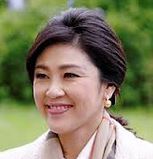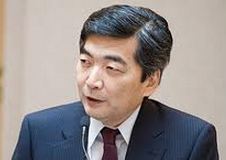[vc_row][vc_column width=”1/2″][vc_column_text]
Thailand
Thailand was the 25th largest economy by nominal GDP in 2018 and the second-largest in South-East Asia. GDP per capita was $7,274 USD. Despite regular political instability, Thailand has enjoyed strong economic growth and social development over the past 40 years. Trade was 123 percent of GDP in 2018. It was ranked 65th in the World Bank's Human Capital Index and 32nd in the Economic Complexity Index in 2017. It is a member of ASEAN. Services accounted for 56.9 percent of GDP in 2018, followed by manufacturing (26.9 percent), and agriculture (8.1 percent). The largest export sectors in 2017 were services (24.2 percent), machinery (16.85 percent), electronics (15.14 percent), chemical (12 percent), and agriculture (11.16 percent). The largest export products were travel and tourism (18.2 percent), parts and accessories for office machines (6.3 percent), and electronic integrated circuits (4.11 percent). Its largest export partners were China (16.7 percent), the USA (12.95 percent), and Japan (9.12 percent). The largest import goods are electronic integrated circuits (4.9 percent), gold (4.62 percent), and parts of motor vehicles (3.4 percent). The ruling Chakri dynasty began to rule in 1782 and established Bangkok as their capital. Thailand began to modernise in the 19th century as they sought to prevent colonialism. However, rice would continue to dominate exports and the economy up until the 1960s. In 1932, a bloodless coup established a constitutional monarchy with parliamentary democracy. Japan occupied Thailand during WW2. In 1947, the military took power and stayed in power until 1973. Since then civilian rule has been punctuated by several military coups. The last coup was in 2014. The economy grew rapidly in the 1980s and 1990s. FDI was encouraged, manufacturing increased, and tourism was developed in Phuket. Manufacturing was initially focused on labour-intensive products such as textiles but by the late 1980s, manufacturing switched to medium and high-tech products. In 1997, the economy was devastated by the Asian Financial crisis, which was triggered by speculation against the Thai currency (the Baht) and the subsequent removal of its US dollar peg. In the 2000s, the economy grew slowly, hampered by political instability and protests. Since 2014, growth has started to improve. Poverty has fallen from 60 percent in 1990 to 7 percent in 2018.
[/vc_column_text][vc_column_text] Its population in 2018 was 69,183,173 [1]
Its population in 2018 was 69,183,173 [1]
 In 2015, 22.86% of its total energy
In 2015, 22.86% of its total energy
consumption was renewable [2]
 In 2021, its GDP grew by 1.57% [2]
In 2021, its GDP grew by 1.57% [2]
 In 2021 it had a negative Current
In 2021 it had a negative Current
Account Balance of US$bn 10.90 [3]
 Its unemployment rate in 2021 was 1.50% [3]
Its unemployment rate in 2021 was 1.50% [3]
 Its Expenditure on R&D (as a percentage of
Its Expenditure on R&D (as a percentage of
GDP) in 2019 was 1.14% [2]
 A Big Mac will set you back the
A Big Mac will set you back the
local equivalent of US$3.72 [4]
What free trade areas or economic unions is it a member of?
Member of the Association of Southeast Asian Nations (ASEAN) since 08/08/1967
Other members:
Brunei Darussalam, Cambodia, Indonesia, Lao People's Dem. Rep., Malaysia, Myanmar, Philippines, Singapore, Vietnam
What trade deals are there between Association of Southeast Asian Nations and other countries and economic unions?
ASEAN - Japan Comprehensive Economic Partnership (from 01/12/2008)
ASEAN - Australia - New Zealand Free Trade Area (from 01/01/2010)
ASEAN - China Free Trade Area (from 01/01/2010)
ASEAN - India Free Trade Area (from 01/01/2010)
ASEAN - Korea Free Trade Area (from 01/01/2010)
Free Trade Agreement between Hong Kong, China and the Association of Southeast Asian Nations (from 11/06/2019)
[/vc_column_text][vc_column_text]What trade deals are there with other countries and economic unions?
India - Thailand partial scope agreement (from 04/09/2001)
Thailand - Australia free trade agreement (from 01/01/2005)
Thailand - New Zealand free trade agreement (from 01/07/2005)
Japan - Thailand free trade agreement (from 01/11/2007)
Chile - Thailand free trade agreement (from 05/11/2015)
[/vc_column_text][/vc_column][vc_column width=”1/2″][vc_column_text]PM Shinawatra: Power through the Democratic Process
Frontier Asia and Hopes for More Inclusive Growth
Trade with the United Kingdom
Source: UK Office for National Statistics, October 2022.
Contains public sector information licensed under the Open Government Licence v3.0.
Loading, Please Wait!
This may take a second or two.

















































































